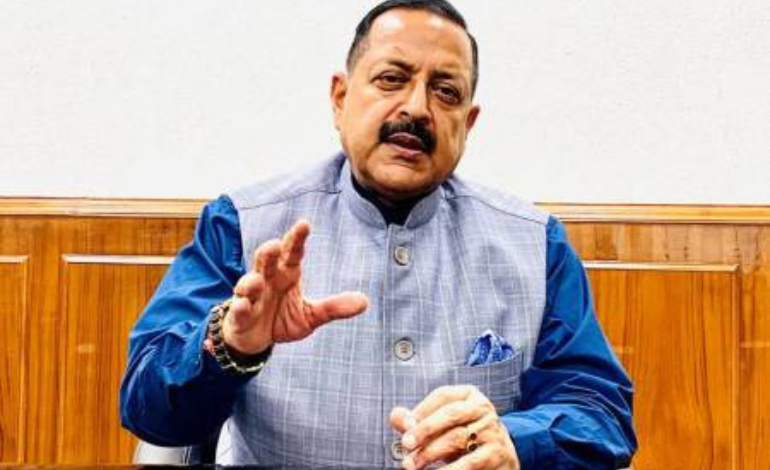
Delhi, 4 December: The official Indian delegation to the United Arab Emirates (UAE) for the two-day international conference that starts on Monday is being led by Union Space Minister Dr. Jitendra Singh. Dr. Singh and Israeli President Isaac Herzog will speak at the inaugural ceremony on behalf of India.
Along with the Minister of State for Foreign Affairs of the United Arab Emirates, the Foreign Minister of Bahrain, and the Minister of Advanced Technologies of Israel, he will also attend the Ministerial Plenary on the "Role of Foreign Policy in Enabling Space Diplomacy and International Cooperation."
In order to examine methods to further deepen bilateral space collaboration, the Minister will also conduct delegation-level discussions with Sarah Al Amiri, UAE Minister of State for Advanced Technology and Chairperson of the UAE Space Agency. Dr. Singh said in a statement before flying to Abu Dhabi that India and the UAE's combined space collaboration is about to make a significant leap in the Arabian Peninsula since both sides have prioritised expanded bilateral space cooperation.
According to him, ISRO and the UAE Space Agency inked an MoU in 2016 addressing cooperation in the exploration and peaceful use of space. The minister also mentioned that the PSLV launched the UAE's first nanosatellite, "Nayif-1," from Siriharikota with the intention of gathering data about the environment. In the previous 25 years of its space mission, the UAE has achieved significant progress and is a rising space power in the region.
UAE launched its Hope Probe Mars mission in July 2020, and it orbited Mars in February 2021. As a result, the UAE became the first Arab nation and sixth in the world to accomplish this achievement. Rashid Rover or the Emirates Lunar Mission will likely launch soon. Hanzala Al Mansoori was the first Emirati to travel to space in September 2019 when he spent eight days on the International Space Station using a Russian spacecraft that launched from Kazakhstan. Another astronaut from the UAE visited the International Space Station (ISS) this year on SpaceX Crew-6, a NASA crew rotation trip.
According to Dr. Singh, Prime Minister Narendra Modi's space reforms have opened up a lot of new opportunities, and just last month, India began a new chapter in its space history by launching its first private rocket. According to him, the reforms have also allowed startups to fully realise their creative potential. From a few space startups three to four years ago, we now have 105 startups working in cutting-edge fields like space debris management, nano-satellites, launch vehicles, ground systems, research, etc.
Dr Singh recalled that while launching Indian Space Association (ISpA), a premier industry association of space and satellite companies on 11 October, Modi said, "Our approach to space reforms is based on four pillars- freedom to the private sector in innovation, the role of the government as an enabler, making youth future-ready and seeing the space sector as a resource for the progress of common man."
During the delegation-level discussions with Sarah Al Amiri, UAE Minister of State for Advanced Technology and Chairperson of UAE Space Agency, Dr. Singh is also set to make a case for cooperative startup ventures between India and the United Arab Emirates in advanced and developing space technology. Cooperation in this area would add a new dimension to advancing bilateral ties given the enormous potential both nations have in the space sector.
Dr. Singh emphasised that since the relationship was upgraded to the Comprehensive Strategic Partnership in 2017, the centuries-old tight bilateral connection has accelerated under the leadership of Modi and UAE President His Highness Sheikh Mohamed bin Zayed.
Both nations want to increase their bilateral commerce from the current level of US$72 billion to US$100 billion over the course of the following five years after signing the Comprehensive Economic Partnership Agreement earlier this year.